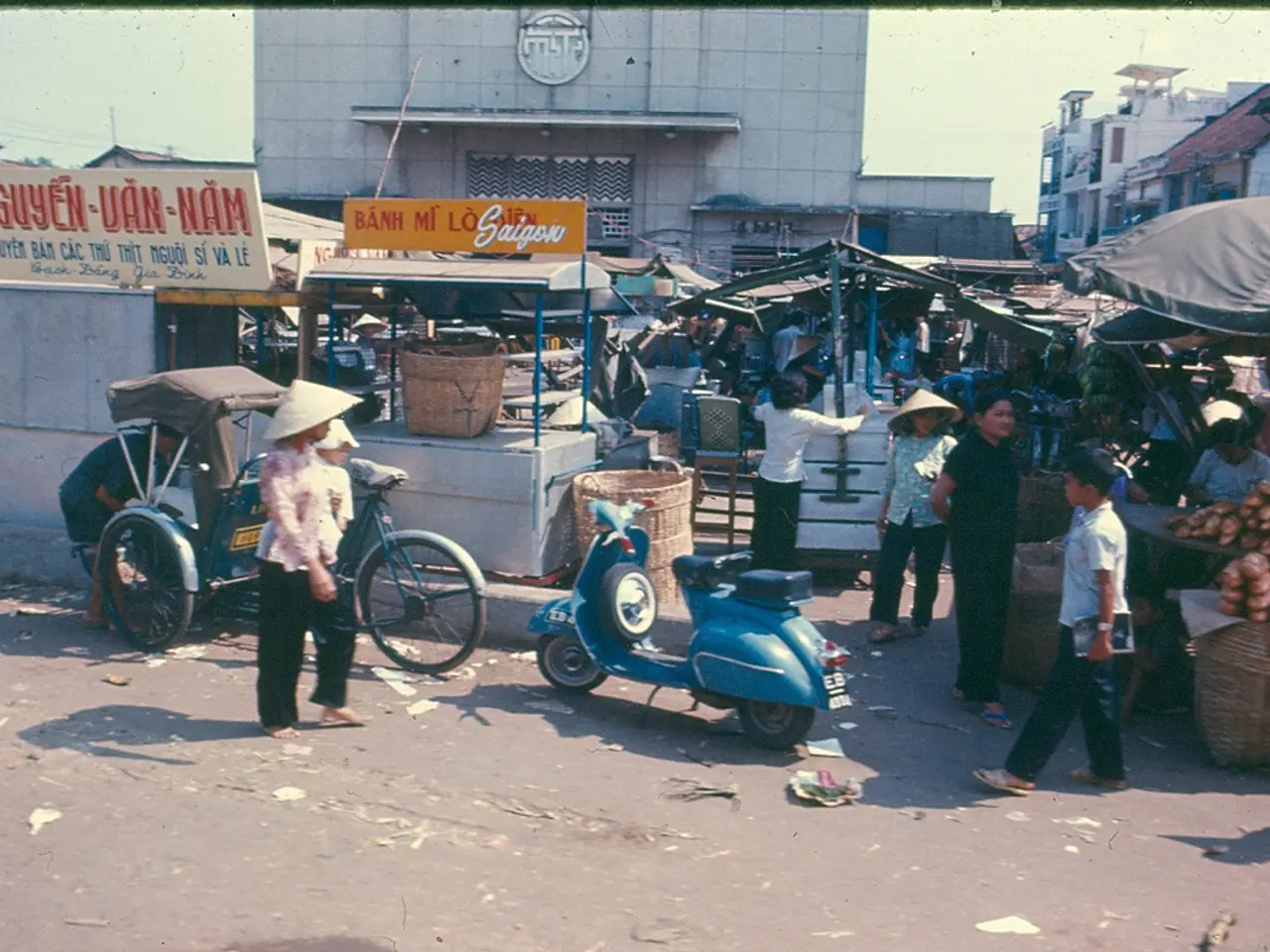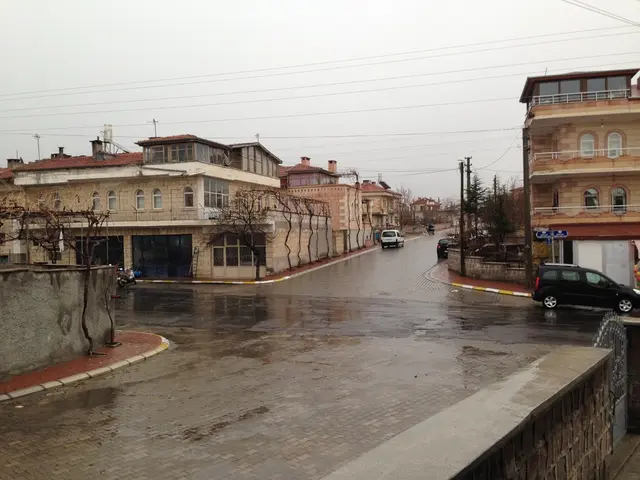Cities reducing plastic waste through data usage
In the bustling city of Lagos, Nigeria, a significant shift towards sustainable waste management is underway. The city, in partnership with the United Nations Environment Programme (UNEP) and the UN Human Settlements Programme (UN-Habitat), embarked on the first-ever audit of its waste in the early 2020s [1].
The audit revealed a concerning fact: each resident of Lagos generates an average of 34 kilograms of plastic waste annually, equivalent to throwing 10 plastic water bottles into waterways daily [1]. This data, combined with the city's daily plastic waste generation of over 2,500 tons, has become a foundation for combating plastic pollution in Lagos.
The Lagos State government has taken decisive action, banning all single-use food containers made from polystyrene foam (styrofoam) in 2024, due to the data from the audit [2]. The ban, effective since July 1, 2025, targets the most common and problematic plastic products [2][3]. Offenders risk business closures, but enforcement remains weak due to lack of alternatives and overwhelmed waste management systems.
Community and private-sector initiatives have emerged to tackle plastic pollution. For instance, a solar-powered recycling hub in Lagos converts plastic into reusable materials, creating jobs, reducing carbon emissions, and alleviating plastic clogging in drainage systems that cause flooding [4].
Experts and activists emphasize the need for behavioural change, starting from consumers, to sort waste better and for manufacturers to produce more easily recyclable plastics to mitigate long-term pollution [1].
Lagos' efforts are not isolated. The city contributes substantially to global plastic pollution, having generated 870,000 tons of plastic waste in 2024[1][2][3]. This supports international efforts, including ongoing treaty negotiations in Geneva to curb plastic pollution globally, in which Nigeria participates.
Looking ahead, the amount of plastic waste is expected to nearly triple within the next 25 years, with the steepest rises coming in developing countries, especially in the Africa and Asia-Pacific regions [1]. Cities like Lagos are taking measures to rein in plastic waste and end plastic pollution, such as the ban on single-use plastics and new investments in waste management infrastructure. Experts consider such measures crucial for curbing plastic pollution, which they consider a growing threat to the environment [1].
The press release emphasizes the importance of reaching the right audience for news, events, jobs, and thought leadership, particularly in the context of waste management and plastic pollution. Key topics include landfill, plastic, pollution, UN, UNEP, waste, and urbanization.
As Lagos and other cities navigate this plastic pollution crisis, the need for concerted global action continues to grow.
References:
[1] UN Environment Programme (UNEP). (2021). Lagos Waste Audit: Uncovering the Plastic Crisis in Nigeria's Largest City. Retrieved from https://wedocs.unep.org/bitstream/handle/20.500.11822/308251/Lagos_Waste_Audit_Report_2021.pdf?sequence=1&isAllowed=y
[2] Lagos State Government. (2024). Single-use Plastic Ban in Lagos: A New Era for Sustainable Waste Management. Retrieved from https://lagosstate.gov.ng/single-use-plastic-ban-in-lagos-a-new-era-for-sustainable-waste-management/
[3] World Health Organization (WHO). (2025). Single-use Plastics and Health: A Review of Evidence. Retrieved from https://www.who.int/publications/i/item/single-use-plastics-and-health-a-review-of-evidence
[4] Solar Waste Recycling Hub Lagos. (2023). Transforming Plastic Waste into Opportunities: Our Story. Retrieved from https://solarwasterecyclinghub.com/our-story/
Read also:
- President von der Leyen's address at the Fourth Renewable Hydrogen Summit, delivered remotely
- Unveiling Innovation in Propulsion: A Deep Dive into the Advantages and Obstacles of Magnetic Engines
- Intensified farm machinery emissions posing challenges to China's net-zero targets
- EU Fuel Ban Alerts Mercedes Boss of Potential Crisis








